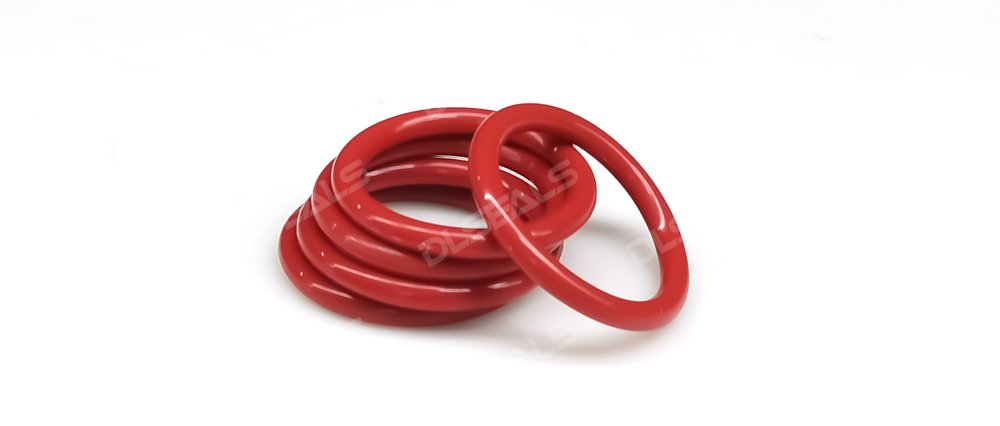News
A2024-08-26

In the food processing industry, rubber seals play an important role in ensuring the sealing of equipment and the hygienic safety of operation. Due to the special requirements of the food processing environment, rubber seals not only need to have excellent sealing performance, but also must meet strict hygiene standards. This article will explore the application of rubber seals in the food processing industry and its hygiene requirements to help companies choose the right sealing solution.
1. Application of rubber seals in the food processing industry
1.1 Maintain equipment sealing
Food processing equipment needs to maintain good sealing to prevent contamination of raw materials and finished products, as well as to avoid leakage of liquids and gases during the production process. Rubber seals are used in the connection parts of food processing equipment, such as mixers, pumps, conveying systems, etc., to ensure that the equipment does not leak during operation.
1.2 Prevent external contamination
During the food processing process, the inside and outside of the equipment are often exposed to moisture, dust and other contaminants. Rubber seals can effectively prevent these external contaminants from entering the interior of the equipment, thereby protecting the quality and safety of food.
1.3 Adapt to extreme working environments
During the food processing process, the equipment may operate in high temperature, high pressure or low temperature environments. The high temperature, low temperature and pressure resistance of rubber seals enable them to maintain effective sealing under these extreme conditions and ensure the stable operation of the equipment.
2. Hygienic requirements for rubber seals
2.1 Food grade materials
In the food processing industry, rubber seals must use food grade materials such as silicone or fluororubber. These materials are certified to meet food safety standards to ensure that the seals do not produce any harmful substances or contamination to food.
2.2 Non-toxicity and odorlessness
Food grade rubber seals should be non-toxic and odorless to avoid reacting with food or releasing harmful substances, thereby ensuring the safety and hygiene of food.
2.3 Easy to clean and disinfect
The surface of the rubber seal should be smooth and not easy to accumulate dirt, so as to facilitate cleaning and disinfection. Food processing equipment often needs to be cleaned with high temperature steam or chemically disinfected, and the seals need to have good resistance to cleaning and disinfection.
2.4 Corrosion resistance
During food processing, the equipment may be exposed to various corrosive substances, such as acidic or alkaline detergents. Rubber seals must have good corrosion resistance to prevent chemical corrosion and extend service life.
2.5 No release of volatiles
Rubber seals should not release any volatiles during operation, which may contaminate food. Therefore, the selected seal material must comply with relevant food safety standards to ensure that no volatile substances are generated during use.
3. How to choose suitable rubber seals
3.1 Determine the application environment
Choose suitable rubber seal materials according to the working environment of the equipment (such as temperature, pressure, humidity, etc.). For example, silicone seals are suitable for high temperature environments, while nitrile rubber seals are suitable for use at low temperatures.
3.2 Refer to food safety standards
Choose rubber seals that meet food safety standards, such as FDA certification or EU food contact material certification, to ensure that the seals will not have a negative impact on food during use.
3.3 Consider equipment maintenance
Choosing rubber seals that are easy to replace and maintain can reduce equipment downtime and maintenance costs. Regularly check and replace seals to ensure that the equipment always maintains good sealing performance.
Conclusion
Rubber seals play a key role in the food processing industry. They must not only have good sealing performance, but also meet strict hygiene requirements. Choosing rubber seals that meet food-grade standards can effectively prevent food contamination and maintain stable operation of equipment, thereby ensuring the safety and efficiency of food processing. Understanding the application and hygiene requirements of rubber seals can help companies make wise choices and improve the overall quality of food processing.
[DLSEALS kindly Reminder] Sealing issues? Turn to DLSEALS! As a sealing component manufacturer, we specialize in customizing sealing components, providing a full range of services from design, research and development, production, testing, and more. If you have more information you'd like to know, feel free to contact us directly. DLSEALS's product experts are dedicated to serving you!